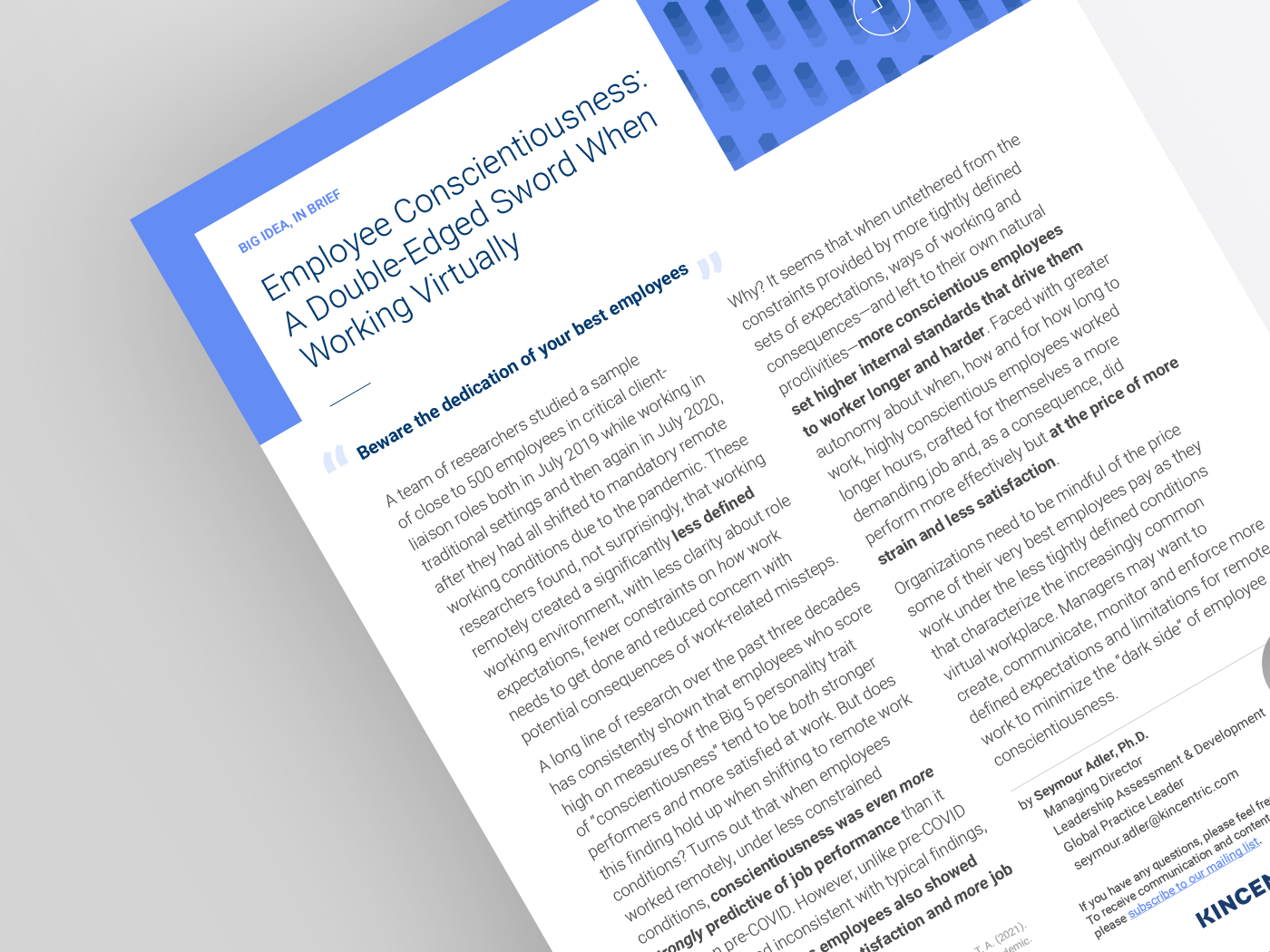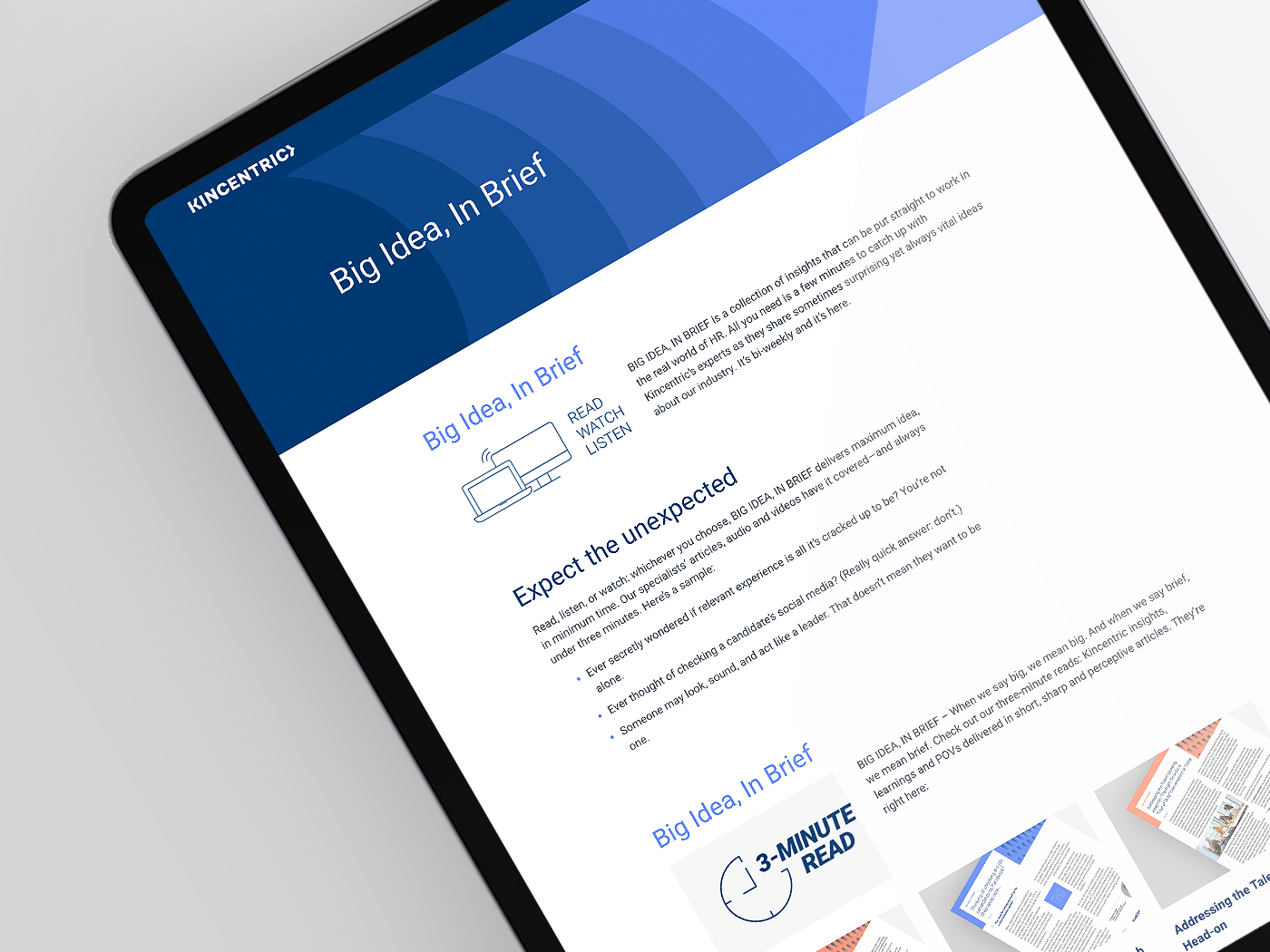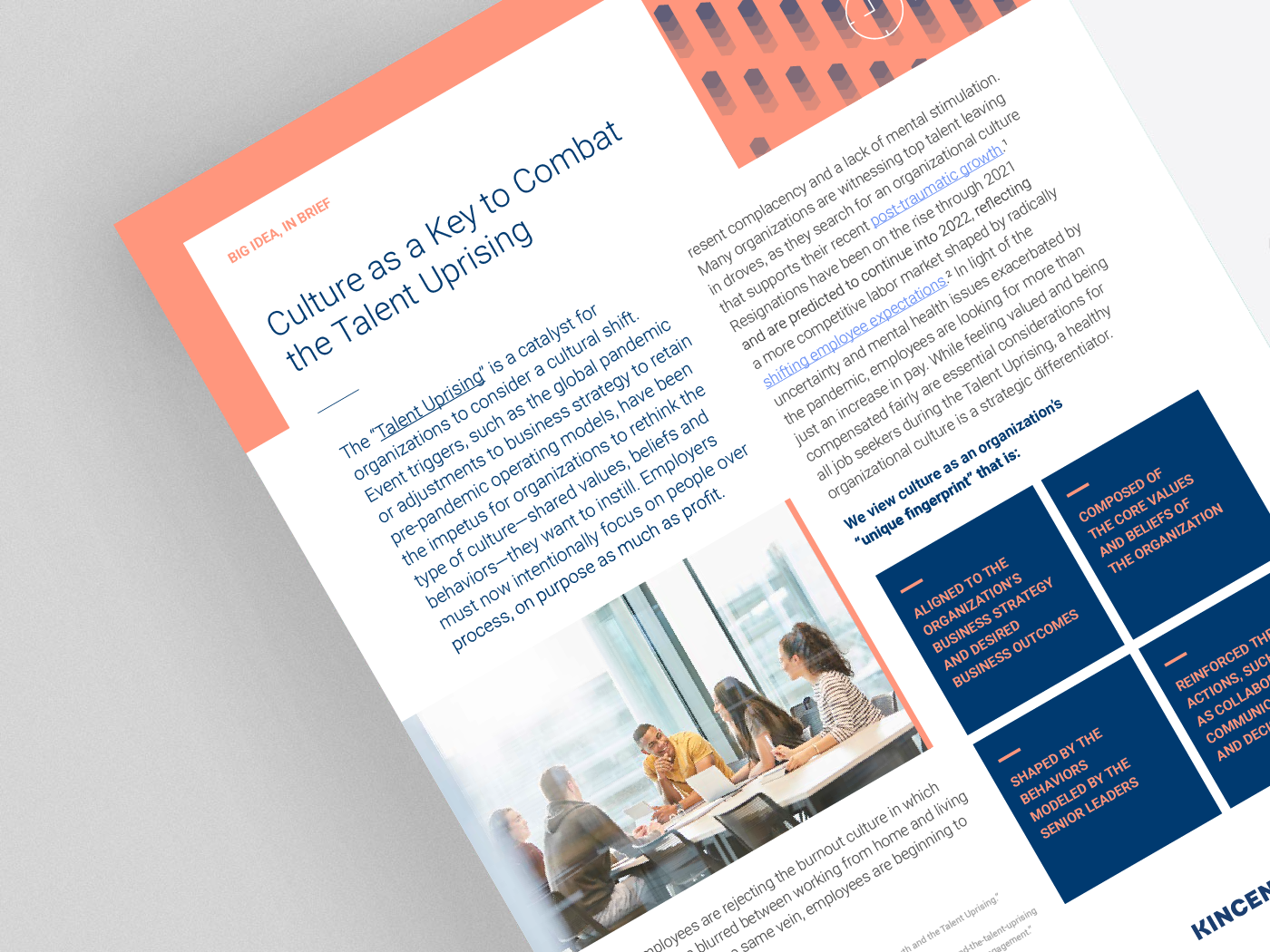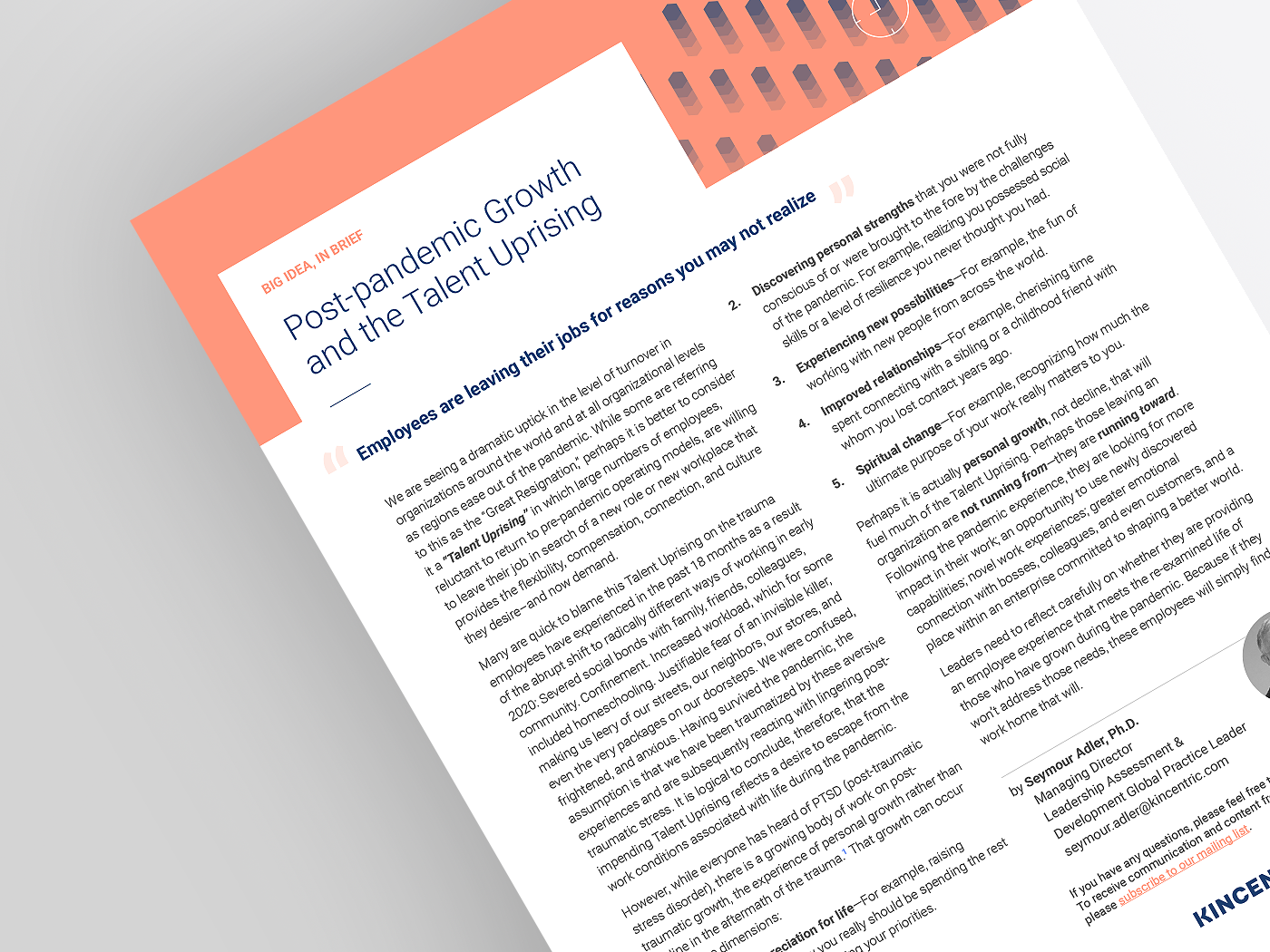
“Beware the dedication of your best employees.”
A team of researchers studied a sample of close to 500 employees in critical client-liaison roles both in July 2019 while working in traditional settings and then again in July 2020, after they had all shifted to mandatory remote working conditions due to the pandemic. These researchers found, not surprisingly, that working remotely created a significantly less defined working environment, with less clarity about role expectations, fewer constraints on how work needs to get done and reduced concern with potential consequences of work-related missteps.
A long line of research over the past three decades has consistently shown that employees who score high on measures of the Big 5 personality trait of “conscientiousness” tend to be both stronger performers and more satisfied at work. But does this finding hold up when shifting to remote work conditions? Turns out that when employees worked remotely, under less constrained conditions, conscientiousness was even more strongly predictive of job performance than it had been pre-COVID. However, unlike pre-COVID conditions, and inconsistent with typical findings, more conscientious employees also showed significantly lower job satisfaction and more job strain under COVID conditions.
Why? It seems that when untethered from the constraints provided by more tightly defined sets of expectations, ways of working and consequences—and left to their own natural proclivities—more conscientious employees set higher internal standards that drive them to worker longer and harder. Faced with greater autonomy about when, how and for how long to work, highly conscientious employees worked longer hours, crafted for themselves a more demanding job and, as a consequence, did perform more effectively but at the price of more strain and less satisfaction.
Organizations need to be mindful of the price some of their very best employees pay as they work under the less tightly defined conditions that characterize the increasingly common virtual workplace. Managers may want to create, communicate, monitor and enforce more defined expectations and limitations for remote work to minimize the “dark side” of employee conscientiousness.
Source: Venkatesh, V., Ganster, D. C., Schuetz, S. W., & Sykes, T. A. (2021). Risks and rewards of conscientiousness during the COVID-19 pandemic. Journal of Applied Psychology, 106(5), 643–656. https://doi.org/10.1037/apl0000919.



Want the latest insights delivered straight to your mailbox?